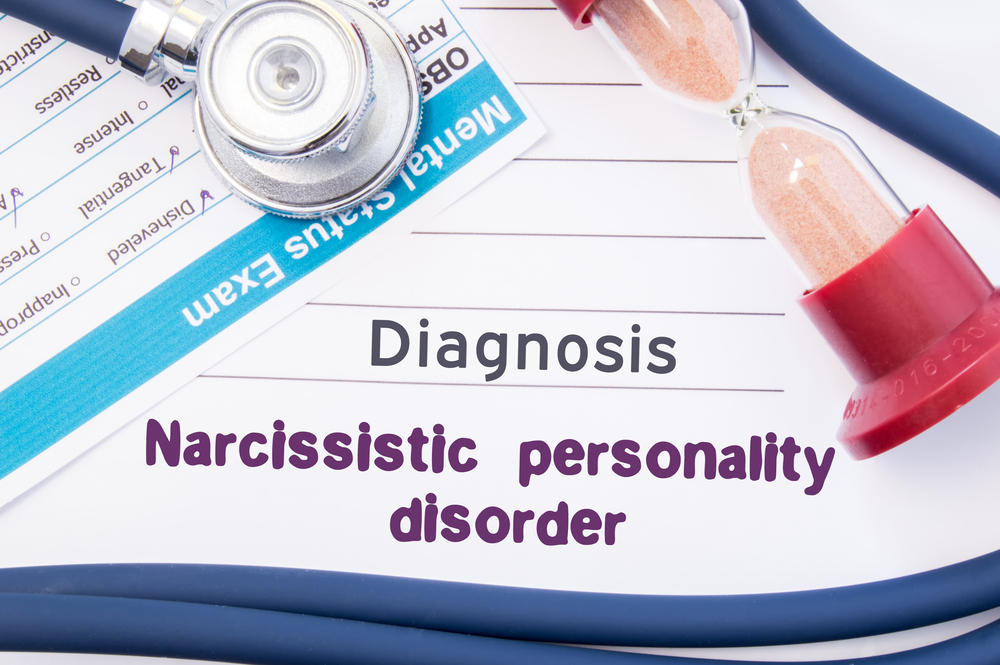Since the beginning of the “me” generation, narcissism has become the new norm, and along with it has come an epidemic of adult egocentric thinking.
But just because a person has an ego the size of Texas, it doesn’t necessarily mean that they have narcissistic personality disorder (NPD).
After all, every millennial knows that their selfies look absolutely fabulous, or else the pics wouldn’t be posted all over social media!
America is a very individualistic society where many people have become obsessed with their image and personal success.
Even so, it can be annoying to have a friend, family member, or partner who can’t seem to stop talking about themselves and act so superior that you begin to wonder if they notice you sitting across from them.
But what causes adult egocentric thinking?
Adult egocentric thinking can be caused by a variety of factors, such as childhood adverse experiences including abandonment or neglect.
Sometimes children learn not to trust anyone except for themselves and inadvertently look out only for their own needs.
But privileged children can also become egocentric, and individualism plays a role, too.
Table of Contents
Adverse childhood experiences and egocentricity

Sure. It’s the oldest excuse in the book: Mommy made me do it. But when it comes to adult egocentric thinking, childhood experiences definitely play a role.
If you think about it, newborns are self-centered. They cry when they’re wet, hungry, or afraid, and are content once those needs are met.
Babies are incapable of considering anyone’s feelings but their own.
As toddlers, their favorite word is “mine”. But eventually, they learn to share their toys on the playground and comfort a crying friend.
However, childhood experiences can interrupt this normal developmental process.
Abuse, abandonment, and neglect
When a child is abused, neglected, or abandoned, they may start to rely on survival instincts and distrust their caregivers.
They may even view siblings and peers as being competition for attention and resources.
As adults, they develop a mentality of looking out for number one. If they don’t, who will?
To be clear, not every abused or abandoned child develops egocentric thinking as an adult.
Sometimes the opposite occurs, and trauma makes them more empathetic.
It all depends on their specific experience, how they perceive it, and whether they received support in the healing process.
So, it’s unfair to say to an egocentric person that you also had a rough childhood and don’t act like them. Each experience is individual.
Jealousy, resentment, and entitlement

Sometimes both parents were present and there was no abuse in the home.
But growing up in an impoverished environment can lead some children to become jealous and resentful of their classmates.
Every other child is wearing new shoes, while their own struggling mother shops at the thrift store.
To make it worse, other children may tease them, which further adds to low self-esteem. As adults, they mask their lack of self-confidence with a falsely large ego.
Once again, not every impoverished child becomes an egomaniac.
Often, they grow up to be the most humble and generous people that you’ll ever meet – especially if they have friends who can relate to their struggles.
Cultural influences and individualism
Some countries are less egocentric than others, but egocentricity doesn’t necessarily discriminate.
Anyone can grow up to be an arrogant, self-centered adult regardless of age, race, or gender. But culture does play a role.
America is a very individualistic society that encourages personal success and self-fulfillment.
From childhood on, you’re taught to do what’s best for you and pursue whatever makes you happy. And then comes the “me” generation.
However, other cultures place a stronger emphasis on family and community, which leads children to grow up learning to take care of one another, thus becoming less egocentric as adults.
Privilege can create arrogance

While abused children from broken or impoverished homes may learn to place themselves first as a survival mechanism, often the most egocentric adults are the ones who grew up with a silver spoon in their mouths.
They are incapable of empathizing with people who have less than them simply because they’ve never walked in their shoes and can’t understand what it feels like to struggle.
Sometimes, they are even taught by family and classmates to not associate with those of lower stature.
The price of the good life
Many privileged people are well dressed, educated, and financially successful, but they have a heart of stone.
However, they still may be able to empathize with a friend who’s going through a divorce or other situation that they relate to.
Occasionally, they may even get involved with philanthropy.
That’s not to say that every rich kid becomes a stuck-up adult, but when you are taught that you’re better than the rest, you start to believe it.
Substance abuse and the ego
Addiction is also strongly associated with adult egocentric thinking, but it’s hard to say for sure whether or not self-centeredness was already present before the addict took the first drink or drug.
Becoming an egocentric addict

Often, underlying trauma and insecurities are what lead a person to turn to substances as a coping mechanism.
But in other cases, they may have had a better-than-average life that just wasn’t enough for them.
Sadly, many people become addicted to opiates after major surgery or injury.
But once a person becomes addicted, egocentric thinking usually comes right along with it.
Addicts neglect their jobs and relationships and become consumed with obtaining that next drink or drug.
Then they get fired, dumped, and disowned. Naturally, they start to only think of themselves and become egocentric, unless they’re also codependent.
Recovery is possible
Most people who have adult egocentric thinking are set in their ways, but therapy can sometimes help if they are open to change – especially if their egocentricity is interfering with other aspects of their lives, such as their relationships.
Surprisingly, out of all egocentric people, self-centered addicts probably have the best hope of changing.
If addiction doesn’t kill a person, they’ll eventually hit bottom and be willing to seek help.
The twelve steps of recovery are focused on making amends and doing service work to become less self-centered.
If they stick with the program, they’ll go from adult egocentric thinking to getting out of bed at 3 am to help another addict.
Narcissistic personality disorder and egocentric thinking

A person can struggle with adult egocentric thinking, but not have narcissistic personality disorder.
However, it doesn’t work the other way around. Every bona fide narcissist thinks in an egocentric manner.
If a person’s adult egocentric thinking is caused by narcissistic personality disorder, the real question is what caused them to develop the disorder.
Causes of narcissistic personality disorder
The actual cause of narcissistic personality disorder is still open for debate.
Some say it’s caused by a traumatic experience around the age of 8, which is when empathy develops in the human brain.
Others say that it’s due to inherited brain abnormalities.
While a history of neglect and abandonment is commonly found in those with personality disorders, this isn’t always the case.
Some narcissists come from very well-to-do families and somewhere along the line, their egos inflate.
Maybe they just never felt like they measured up to their family’s high standards. Deep down, narcissists are extremely insecure. The egomania is all just an act.
They maintain an image of success and superiority to hide their low self-esteem.
How to help someone who has adult egocentric thinking

Unfortunately, if the person has narcissistic personality disorder, they need professional help, and the recovery outlook is dim.
It’s hard to convince someone to address their issues when their ego is too fragile to admit that they even have issues.
Helping your friend make a change
If you suspect that a friend or loved one’s egocentricity is due to an underlying addiction, you can give them information on resources and let them know that you’ll be there for them when they’re ready to make a change.
But to forewarn you, that change will happen in time.
Now, if your friend doesn’t have any serious psychological issues and is simply full of themselves, and assertive, respectful, and honest chat can improve your relationship.
Tell them how you feel

Let them know that you feel ignored. Ask them to tell you three things they love about you and then reciprocate.
Make a deal that you both get time to share what’s going on in your lives each time that you meet up.
Remember that they are egocentric, so point out that you love hearing about their success and agree that they’re awesome, but you’d like to have a chance to share your stories, too.
Tell them they are special to you, and you want to feel as though you’re special to them, too.
Volunteer together
Volunteering is one of the best ways to treat self-absorption.
And if you take the initiative and donate your time to a good cause, you may possibly be able to get your egocentric friend on board. And it could change their lives.
Sign up to serve a holiday meal at your local soup kitchen and invite your egocentric friend to join you.
Sometimes special events are covered by newspapers, or the outreach ministry may have a blog. Your friend will be more likely to agree if it boosts their image.
Take time to get to know the homeless people who attend the outreach ministry.
Maybe offer to bring clothes to a homeless woman your size.
Insist that your egocentric friend comes along because she has the best fashion sense.
It’s almost guaranteed that your friend’s heart will change after that experience.




